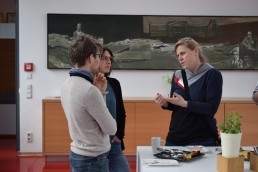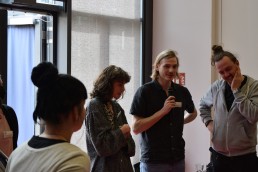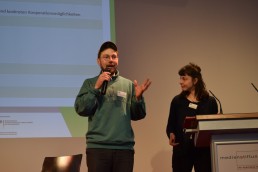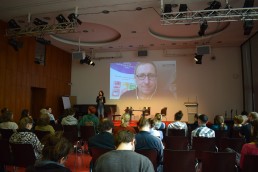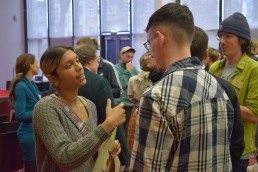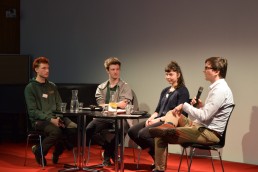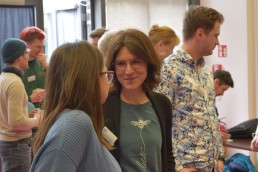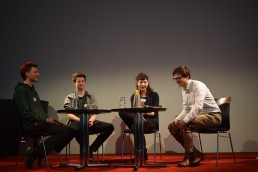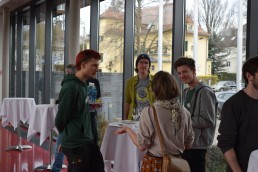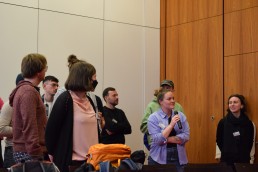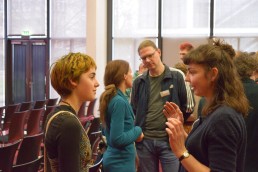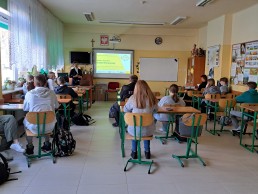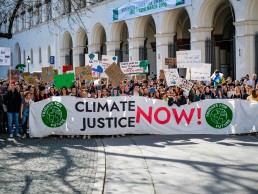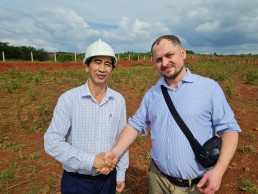Why do we work in the field of climate protection?
Climate change is one of the greatest challenges of the current century. At the 2015 UN Climate Change Conference in Paris, the international community agreed to limit global warming to below 2°C compared to pre-industrial levels. This requires drastic reductions in climate-damaging emissions in order not to expose the earth, its ecosystems and society to the uncontrollable cascading effects of global warming.
With the Climate Protection Act of 2021, the German government has set the goal of reducing greenhouse gas emissions in Germany by 65% by 2030 and making the country climate-neutral by 2045. However, projections make it clear that Germany will miss these targets with its current climate protection measures. Efforts to protect the climate have also been insufficient at international level. The sixth assessment report of the Intergovernmental Panel on Climate Change (IPCC) shows that the international community’s national climate protection targets are not enough to limit global warming to well below 2°C.
UfU is therefore involved in various projects at national and international level to promote the transition to a low-carbon society. UfU’s services include capacity building, extracurricular education, transdisciplinary research, policy advice, policy and strategy analyses, science communication, legal analyses and advice as well as scientific support for dialog processes.
Renewable energies and a socio-ecological energy transition
By moving away from fossil fuels towards renewable energies, sustainable and socially just security of supply can be achieved in the world. This requires comprehensive reforms to energy policy. This transformative process can only succeed as a joint project between governments, industries and the population. The costs and benefits are distributed differently among different stakeholder groups. In order to ensure that this transformation process is successful and meets with acceptance as well as being socially just and ecologically compatible, UfU is working on the development of narratives for a socio-ecological energy transition that introduce stories of success into discourse and dialog processes. For example, UfU uses innovative participation and education formats to empower young people to help shape sustainable regional structural change and evaluates measures to mobilize the positive side effects (co-benefits) of the expansion of renewable energies. UfU contributes these findings to the international political dialog in order to identify ways of overcoming obstacles to progress in the field of climate protection.
Strengthening civil society
Civil society organizations play a particularly important role in climate policy as observers, mediators and experts. We frequently work with civil society actors in Germany and abroad and investigate ways in which their climate policy and practical commitment can be made even more effective.
Contact person
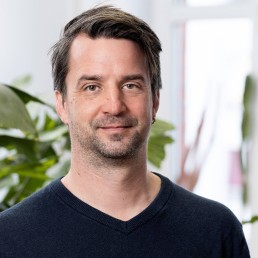
Florian Kliche
Energy efficiency & energy transition
Graduate engineer
Head of department
Phone: +4930 4284 993 26
E-Mail: florian.kliche@ufu.de
Publications
Nothing found.
… all publications in this subject area
Current UfU projects in this field:
Wir erstellen digitale Lehrmaterialien für die 17 Nachhaltigkeitsziele der Vereinten Nationen.
The three-year "Mein grün-faires-Revier" programme empowers young people in the Lusatian mining district (LR) and Central German mining district (MR)…
In the building-dialogue project, three dialogue formats are being developed that combine simulation and visualisation tools with innovative…
The biomass production for energy use is already carried out in rural areas on a large scale and with a high consumption of land. In this pilot…
Im Pilotprojekt Energiepflanzenanbau auf stillgelegten Bergbaustandorten in Vietnam (CPEP – Climate Protection through Energy Plants) wurde von 2015…
Environmental organizations have an important task in the implementation of the Paris Agreement on the national and local level: In their role as…
News from this subject area:
9. March 2023
More protection for environmental defenders – UN Special Rapporteur visits UfU
The UN Special Rapporteur on Environmentalists visits UfU to discuss the situation for activists in Germany together with other associations.
27. January 2023
Bioenergy without land conflicts
The cultivation of cassava on disused mining land for the production of bioethanol makes a meaningful contribution to climate protection in…



